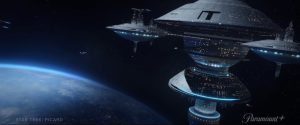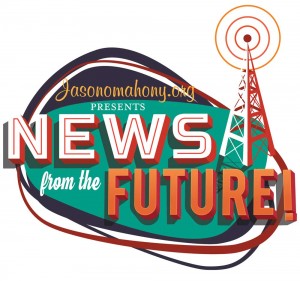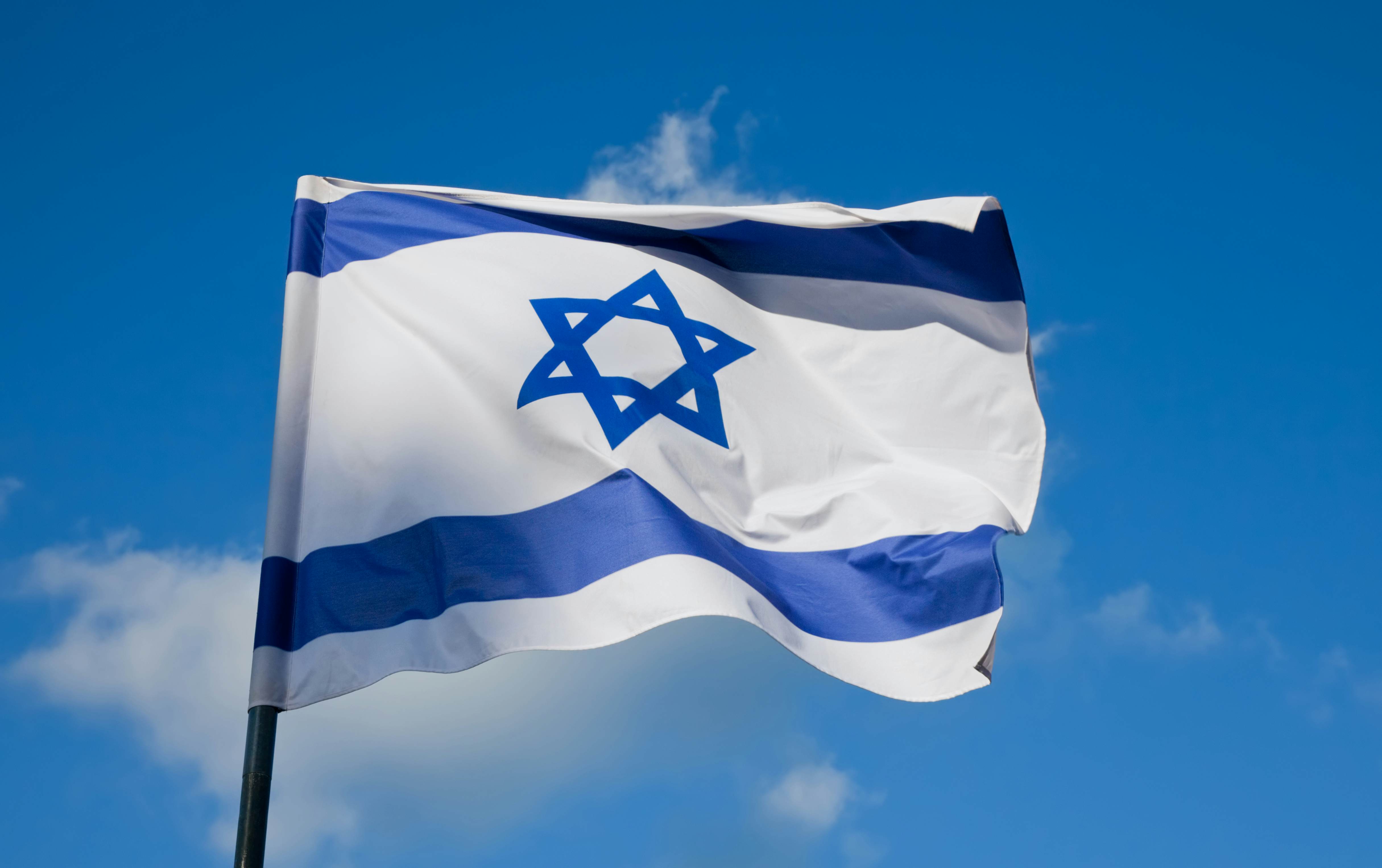 President Chekov liked working on paper. Well, paper substitute, as they hardly ever manufactured paper by the old methods these days. The report on his desk had been replicated, and when he had finished reading it, his staff would scan any notes he had written on it with his father’s pen, and it would then be recycled. But it looked and felt like paper. His non-human advisors joked at the human love of paper, and the fact that humans still insisted that treaties be formally printed and signed, but even they get a frisson when they viewed the original Coalition of Planets declaration on view in the Pompidou Centre. Jonathan Archer himself once signed that.
President Chekov liked working on paper. Well, paper substitute, as they hardly ever manufactured paper by the old methods these days. The report on his desk had been replicated, and when he had finished reading it, his staff would scan any notes he had written on it with his father’s pen, and it would then be recycled. But it looked and felt like paper. His non-human advisors joked at the human love of paper, and the fact that humans still insisted that treaties be formally printed and signed, but even they get a frisson when they viewed the original Coalition of Planets declaration on view in the Pompidou Centre. Jonathan Archer himself once signed that.
The report was slim, the way he liked his reports. Straight facts, short sentences, clear conclusions. Another thing the staff knew to generate. This particular report was very stark. 6124 Starfleet officers had died on Frontier Day. Sol Station had permanently damaged or destroyed 37 ships, including the flagship.
conclusions. Another thing the staff knew to generate. This particular report was very stark. 6124 Starfleet officers had died on Frontier Day. Sol Station had permanently damaged or destroyed 37 ships, including the flagship.
The long-term psychological effects on Starfleet’s young officers continues to be felt, with just over 25% of them resigning or needing intense counselling, as all remember their actions vividly. Starfleet medical noted that whilst it would be possible to wipe the memories of those hours, it was a drastic move, and they couldn’t guarantee it would stay. The last thing you needed was Starfleet officers suddenly having flashbacks to themselves murdering their crewmates. The Troi report had been adamant about that: our young would have to be helped work through their pain.
The Troi report. He chuckled to himself. His dad would have been so proud that it had been the Enterprise that had turned the tide. What was it about that ship, the myth that hung about it? Names mean so much, and Enterprise keeps saving the Federation.
Even the aftermath had Enterprise’s crew taking such a role. Hardly surprising given how many senior officers died, but still. Picard as acting CinC until Janeway recovered from her injuries, Crusher at Medical, Tuvok (who had served under Sulu) at Starfleet Academy, LaForge and Data leading the rebuilding of Sol Station, although he had insisted at the rededication of the station that his assistant, Chief O’Brien, a retired engineer from Dublin (yet another ex-Enterprise crew), had done most of the work. Worf taking over at Section 31.
Section 31. He leaned back in his seat. Like so many in Starfleet and the Council, he was ambivalent about the organisation. Its mere existence was a stain on the ideals of the Federation, and yet in an age of the Tal Shiar and Obsidian Order every president faced the same choice, and concluded the same. To keep the Federation flag flying we needed the men in the shadows.
Not anymore, Chekov concluded. They had failed. They failed to detect Commodore Oh, an actual Romulan as head of Starfleet Intelligence. They failed to detect the first changeling invasion, nor this one. Well, correction, Ambassador Worf and Commander Mussiker had detected it, but their superiors had been compromised. Enough. He was going to bring Section 31 under the Council, and formally appoint Worf and Mussiker as director and deputy director and let them clean house. Picard had insisted that those Starfleet and Federation officials who had tortured the changelings be prosecuted, Chekov agreed. Their trial started in a month.
He found his own thoughts drifting back to the day. The horror as his many of his own bodyguards turned against him. The running battle to get to the bunker. The moment he suddenly remembered the very first thing they had told him when he had been elected by the Council, tapping his Federation lapel badge and the six Emergency Presidential Security Detail Holograms suddenly appearing and whisking him to safety in a hail of phaser fire. It was funny how little things stuck in his brain: how the EPSD all looked like Zimmermann but had the most beautiful thick lustrous hair. But boy had he programmed them well. As a cinema buff one of his favourite movies was the old 20th century classic “Heat”, with its spectacular gun battle scene as bank robbers with automatic weapons systematically fought their way up a street against superior forces. That had been what it had been like, his bodyguards, older ones and the holograms, had cut their way through the enemy (it pained him to think that) with those new phaser assault carbines. Outside he could see French police engaged in furious gun-battles with Borg Starfleet.
He remembered his transmission, when it looked like all was lost. And then the news that the Enterprise D was engaging the Borg over Jupiter. The D? Surely some mistake? Sol Station was holding out. And the Titan, whom Starfleet Command had informed him a day previously had been hijacked by possible changeling infiltrators, was engaging in a battle with the fleet. The Titan?
And then suddenly, it ended. The signal stopped, the assimilation ended as quickly as it started. He remembered his tense call to the Klingon Chancellor who was assembling a fleet to attack, and honestly wanted to know how could he tell if Chekov himself was not a changeling? Chekov agreed to a Klingon fleet coming immediately to Earth to see what was happening form themselves. Worf had helped with that too: the House of Martok was not without allies.
The raid by Starfleet special forces on the installation where the changelings had kept their prisoners. The fact that the Dominion very quietly (again through Worf!) assisted us was kept very quiet.
It had seemed churlish, the idea of a celebration. So many had died, a memorial had to be built to their memory. And yet as the days passed there was a growing demand on Earth for heroes too. The sight of the Enterprise D doing a barrel roll as it thundered down the Champs Elysee is not one Chekov would forget. And Captain Seven, of course. She was already famous as the ex-Borg drone but now, as the ex-Borg drone that had fought the invasion, those in Starfleet Command who had expressed misgivings (and were still alive) had the good sense to keep their mouths shut now, given that Starfleet was now made up of 40% ex-Borg.
The report also pointed out that it had been Starfleet’s Human Resources policy of keeping older families on Sol Station that had allowed the attempted takeover be repelled and the station hold out for so long. Indeed, the crew of Sol Station will be honoured separately, as no one had expected the station to hold out as long as it did. It later emerged that Sol’s defence upgrades had been installed by the former chief of Deep Space Nine (and the Enterprise), that same Irish engineer who helped Laforge rebuild the station. Apparently the Irish government are renaming Dublin Spaceport after him.
He closed the report, and opened the following file, and smiled at the heading. It was an unusual request, especially given the role the ship had played. But he’d consulted with the crew personally, and all saw it as an honour. Another glimpse at the picture of his father on his desk.
He signed it without hesitation: the Federation needed an Enterprise. Names mean everything.
 Dateline: Geneva, 2099
Dateline: Geneva, 2099








 The Prime Minister of Israel has the opportunity to send someone back in time. Should he order the obvious mission?
The Prime Minister of Israel has the opportunity to send someone back in time. Should he order the obvious mission?
